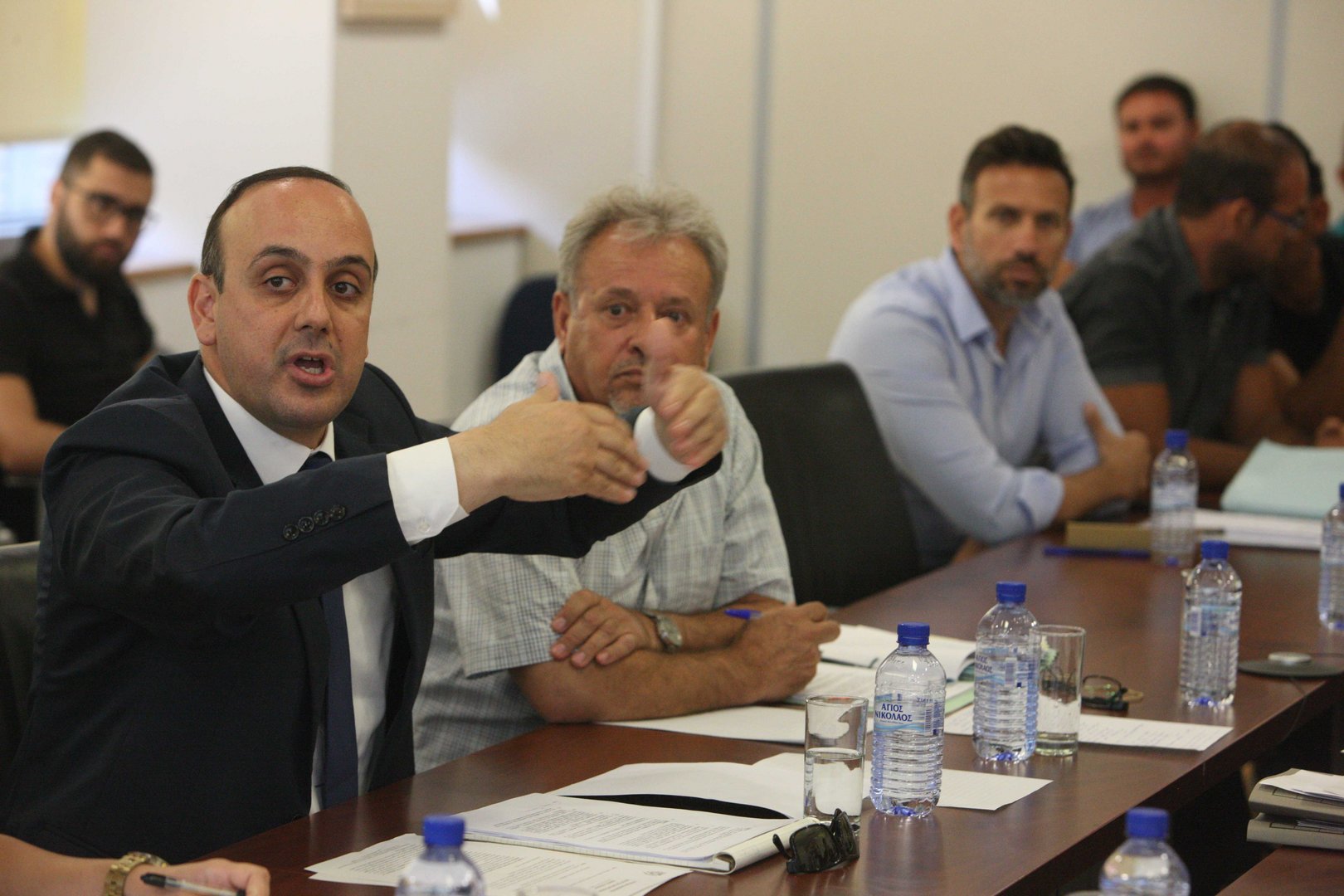Paphos mayor Phedonas Phedonos was incandescent with rage on Thursday over police chief Themistos Arnaoutis’ public call on him to testify regarding claims he had made of links between foreign exchange companies in Cyprus and Latin American drug cartels.
In an open letter, he said he had already informed Arnaoutis that he would visit the police headquarters and testify, and said he had “pointed out my concern about the frequent leaks which occur when a testimony is given, even before an investigation begins”.
As such, he said, it had been decided that he would testify in Nicosia, likely on Sunday.
He added that Arnaoutis had given him his mobile phone number so as to be directly contactable and rule out the possibility of leaks, but that “just 42 minutes after this communication, I realised that the police, with your full knowledge, made public the news” that he had been asked to testify.
“This action, in addition to violating your commitment to me, seriously jeopardises my personal safety, for which you have a responsibility, just as you have towards every person in this country, and I ask that this be taken into account,” he said.
He then added that the names of “specific drug traffickers, who are mainly active in Paphos”, are “well known and have been mentioned publicly and at the highest levels of government, including in my meeting with [Justice Minister Marios Hartsiotis] and [Arnaoutis’ predecessor] Stelios Papatheodorou”.
“I call on you to examine the minutes of this meeting and to proceed immediately with an investigation, without any other excuses or delays,” he said.
“You must bring about a result, that is, neutralise them.”
“The weaknesses and perhaps the lack of political will for a complete and permanent break with organised crime and drug trafficking and sales networks can no longer be tolerated by society. The consequences are catastrophic,” he said.
He also called for Arnaoutis and the police at large to “completely distance themselves from any political involvement, so that they serve only the public interest”, and do not “indirectly protect the government or the state from criticism”.
He then said that he had previously “spoken in detail” about the allegations he had made with both assistant police chief Michalis Katsounotos and Hartsiotis, and added, “therefore, proceed to neutralise them immediately”.
“As the mayor of Paphos, and as a public figure, I will come back whenever I deem it useful with public statements on the issue of drugs. As the ones who bear responsibility for combating all kinds of crimes in our country, take advantage of the possibilities given to you by the law, by technology, and by the 5,000 personnel you have to make this small place safe and free from organised crime,” he said.
He added that he had also sent a letter to House president Annita Demetriou to request that parliament discuss the sale of drugs in schools in Cyprus, as well as the allegations he had made regarding links between forex and Latin American drug cartels.
He closed his letter by saying that he would call on Hartsiotis and the government at large to “explain directly what political will they will show to deal with these phenomena”.
“The situation cannot deteriorate year after year and be considered normal. It is the job of the police and of the government to protect society and the rule of law.”
Phedonos had made the allegations of links between forex in Cyprus and Latin American drug cartels on Wednesday, describing Cyprus as “a market for high drug consumption” and saying the island is “now entering the international money laundering system of Latin American drug cartels”.
“Organised crime, with local and international connections, exploits vulnerabilities of corruption, the postal system, the buffer zone, and the ports to traffic drugs internationally, but the quantities sold on the local market are also huge, with a turnover of tens of millions,” he said.
“Many foreign exchange companies based in Cyprus, through a labyrinth network of companies they create in Latin America, participate in the laundering of dirty money originating from the drug cartels of Mexico and other Latin American countries.”
He posed two questions to Cyprus’ authorities, asking “why do some forex companies based in Cyprus create subsidiaries in Latin America with such a large clientele from these countries?” And how Cyprus’ supervisory authorities “allow these money routes without investigating the money’s origin”?






Click here to change your cookie preferences